News in Brief
-
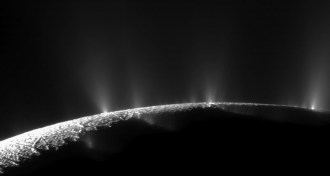 Planetary Science
Planetary ScienceSaturn moon’s geysers draw water from subsurface sea
More than six years of Cassini data indicate that the water jets on the surface of Saturn’s moon Enceladus connect to deep-ocean reservoirs via expanding cracks in surface ice.
-
 Psychology
PsychologyGoalkeepers deceive themselves when facing penalty kicks
Soccer’s goalies fall victim to a logical fallacy during the sport’s most high-pressure situation, seeing trends where none exists.
By Nsikan Akpan -
 Neuroscience
NeuroscienceStudy linking narcolepsy to autoimmunity retracted
Data linking disorder to immune cells couldn’t be replicated, scientists say.
By Nathan Seppa -
 Environment
EnvironmentRecycled water may flood urban parks with dangerous germs
Irrigating city parks with recycled water may flood the soil with drug-resistant microbes.
By Beth Mole -
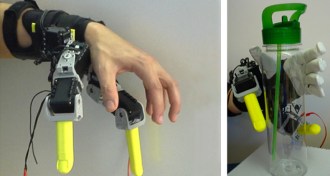 Tech
TechWith two robotic fingers, humans get a helping hand
Mechanical fingers grasp like the real thing.
By Meghan Rosen -
 Environment
EnvironmentWild monkeys near Fukushima have low blood cell counts
Primates near the ill-fated nuclear power plant may have been affected by radiation.
By Beth Mole -
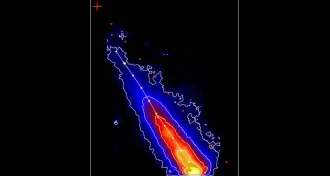 Planetary Science
Planetary ScienceComet ISON fell apart earlier than realized
Comet ISON disintegrated at least eight hours before it grazed the surface of the sun last fall, new observations show.
-
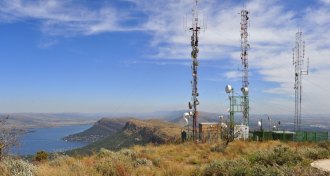 Climate
ClimateCell phone towers monitor African rains
Scientists used cell phone towers to monitor African rains, a method that could track weather in regions without robust meteorological infrastructure.
-
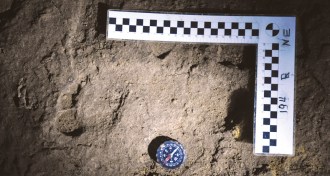 Anthropology
AnthropologyRomanian cave holds some of the oldest human footprints
A group of Homo sapiens left footprints about 36,500 years ago, not 15,000 as scientists had thought.
By Bruce Bower -
 Physics
PhysicsDiamonds under pressure impersonate exoplanet cores
Scientists use lasers at the National Ignition Facility to squeeze diamonds to the extreme pressures found inside massive exoplanets.
-
 Neuroscience
NeuroscienceHeavy marijuana use may affect dopamine response
People who regularly smoke five joints a day had dampened reactions to the chemical messenger dopamine.
-
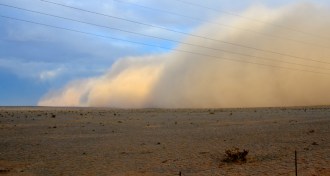 Climate
ClimateWindblown dust may muck up regional climate predictions
Climate simulations don’t accurately portray the behavior of windblown dust, which may result in inaccurate regional forecasts.
By Beth Mole